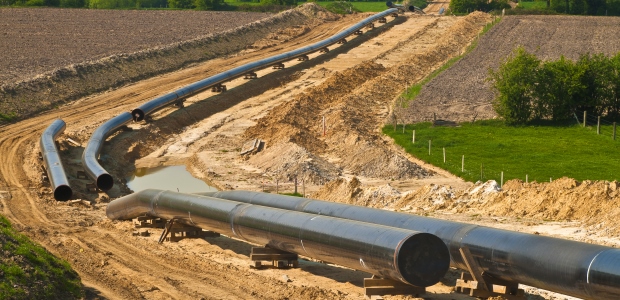
Obama's Decision on the Keystone XL Pipeline
President Obama’s awaited decision on the Keystone XL pipeline has become a proxy for the larger debate on climate change. Will Obama allow the pipeline to go forward?
- By Doug Ruley, Will Kirk
- Dec 18, 2013
In 2014, President Obama will decide whether to block or allow the proposed Keystone XL pipeline, which would increase the transportation of oil from Canada to Gulf Coast refineries. The pending decision symbolizes a fundamental choice for the United States and the world regarding a reduced-carbon future.
The proposed Keystone XL would transport bituminous (“tar sand”) oil from Alberta, Canada to Steele City, Nebraska, and then to Texas, thereby connecting the Canadian tar sands region to refineries and ports on the Gulf Coast.
Obama indicated he will not allow the pipeline if it would exacerbate carbon pollution. Critics and proponents alike agree that mining tar sands oil produces significantly more greenhouse gas emissions than conventional crude oil. But Canadian and U.S. oil and mining interests continue to push for the pipeline’s construction, arguing the tar sands oil will be mined regardless of the pipeline—an argument that ignores the current difficulties in moving the tar sands oil to refineries.
In addition to concerns about greenhouse gas emissions from the oil itself, the project requires both mining and transporting the tar sands oil, which in turn requires more energy and water than conventional oil drilling. It also destroys irreplaceable boreal forest and wetlands and poses grave risks of spills and leaks as it crosses the heartland of America, including the Ogallala Aquifer, a primary source of fresh water for eight farmland states. Moreover, farmers will lose farmland along the proposed route through the power of eminent domain. Foreign corporations will receive much of this land.
The costs of the proposed pipeline seem to far outstrip the benefits. Studies demonstrate that the pipeline would generate relatively few long-term jobs and contribute little to America’s energy security because the oil would be sold on the global market.
By opposing the Keystone XL and the interests behind it, a coalition of farmers, families, and environmentalists have highlighted the pipeline’s importance as a tipping point toward one of two very different futures. President Obama’s decision on this project in 2014 will further commit the country to one of those futures.
About the Authors
Douglas A. Ruley is the director of the Environmental and Natural Resources Law Clinic and has litigated multiple environmental cases over the past two decades. In 2011, he became certified as a specialist in appellate law and began a practice focused on appellate representation and climate consulting. He became the director of the ENRLC in April 2012.
Will Kirk is a second-year JD student and a staff editor at VJEL. He is passionate about conserving our natural lands while encouraging our youth to develop a meaningful connection with the natural world.